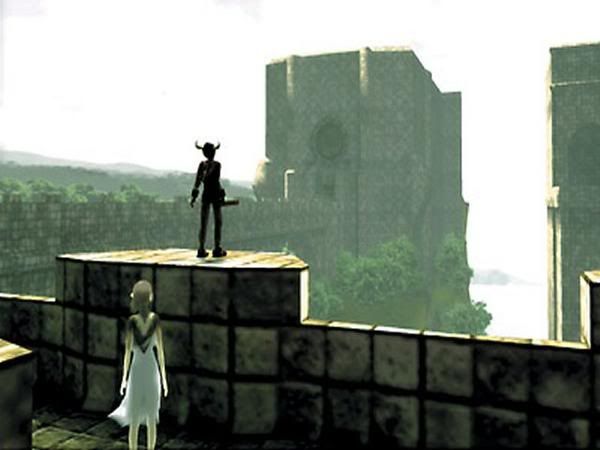This post has not been edited by the GamesBeat staff. Opinions by GamesBeat community writers do not necessarily reflect those of the staff.

Recently, I came across Ico: Castle in the Mist, a novelization based on the critically acclaimed PlayStation 2 title Ico. This struck me as odd. I picked up the book and gave it a once over, and after a couple of pages, sure, it seemed like a good read, but something was missing. And as I thought about it, I realized that any video game that can effectively be translated into a book is not pushing the storytelling to its full potential.
Super Mario Bros. doesn't have much narrative depth beyond being something you could kill a couple of hours with. Crash Bandicoot's story didn't involve much more than Dr. Cortex seeking world domination and you stopping him.
And these sorts of titles still exist. Mortal Kombat isn’t pushing a lot of boundaries, but plenty of other gems are out there with just as much to say as any of today’s blockbuster films. These games used to fuel my arguments with people who didn’t “get” games. You like books? You like movies? You’ll like games, at least some of them. But there, in the book store, I saw that the argument is a great deal weaker than it should be. Video games have the potential to be much more effective than those books or films could ever be.
Books are written in first- or third-person. In the third-person style, you’re reading about someone or something. Ico pushed the block. Well, I guess. That doesn’t seem to encapsulate the situation, though. Commander Shepard saved the geth. That Mass Effect-inspired statement is just plain false. I saved the geth. Or, for some, I killed off the entirety of that species! The statement isn’t particularly effective in this context.
What about the first-person perspective? I pulled the lever. Someone is telling you about it. Not only would I much rather blow up Fallout 3's Megaton on my own than have someone tell me about it, but now, we know that the main character lives until the end. Spoiler by way of voice. Besides, as anyone who played the game will tell you, Ico isn’t much of a talker beyond, “Come on! Let’s go!”
While movies have lent visual stimuli to the otherwise fine stories literature has long produced, the dilemma remains. The participant is still watching the action, letting it play out in front of him or her.
Not all games are built on this notion. While I enjoy the gameplay of Metal Gear Solid 4: Guns of the Patriots well enough, the cutscenes and narrative really got me. I could sit and watch all of those in succession and be content. But at the same time, other games have pushed further.
I’m not just talking about tackling more mature and complex themes à la Catherine or the upcoming Papo & Yo. I’m talking about a new experience altogether. I’m talking about being invested in a game at a personal level.
Games are very good at this from the get-go. Describing the premise of an interactive title, in many cases, begins with “You play as…” or “You take on the role of….” These statements highlight the mountains they allow us to move in the long-stagnant field of storytelling. By their very nature, games change the way we relate to the tales we are no longer hearing but experiencing. It parallels the differences between sympathy and empathy. “That seems sad” versus “I’ve experienced that, and I know how that sadness feels.”

Let’s bump it up another level with Ico. A boy with horns sets out to rescue a strange girl. The antagonist is, in many ways, a giant castle. The biggest gameplay element? Holding the R1 button. Keep her hand in yours. Don’t let go. It's so simple but, with a notable lack of cutscenes or speech, an incredibly powerful mechanic. Any situation you approach where you have to let go is met with dread. A demonic attack causes your heart to accelerate. Sure, the underlying fear is a game over screen, but that fear is so closely related to her not escaping the castle. Falling away from the girl as her path retracts later in the game can lead many to tears despite nonexistent narrative character development. The simple hand-holding objective created a personal investment and responsibility that set Ico aside from many of its peers.
Today’s games are moving even beyond that, effectively building on the choose-your-path books, a gimmick once reserved for children’s franchises like Goosebumps, hardly a tool to be taken seriously.
These choose-your-path decisions now decide the fate of entire races when placed behind the guise of Commander Shepard, an avatar for your long-repressed dreams of being an astronaut. That “gimmick” now means life or death for a reporter, a private eye, an FBI agent, and a father and his young son in Quantic Dream’s Heavy Rain. Very few movies have even approached this. The only example I can think of is a video-tape-accompanied version of Clue, which was marketed as a game anyway.
If you don’t “get” games, the only thing I can say is sometimes a title could tell a story in a better way than any other medium.
Ico might be good as a book, but it's certainly not on the same level as the game.
Reposted from Musings on Gaming.
